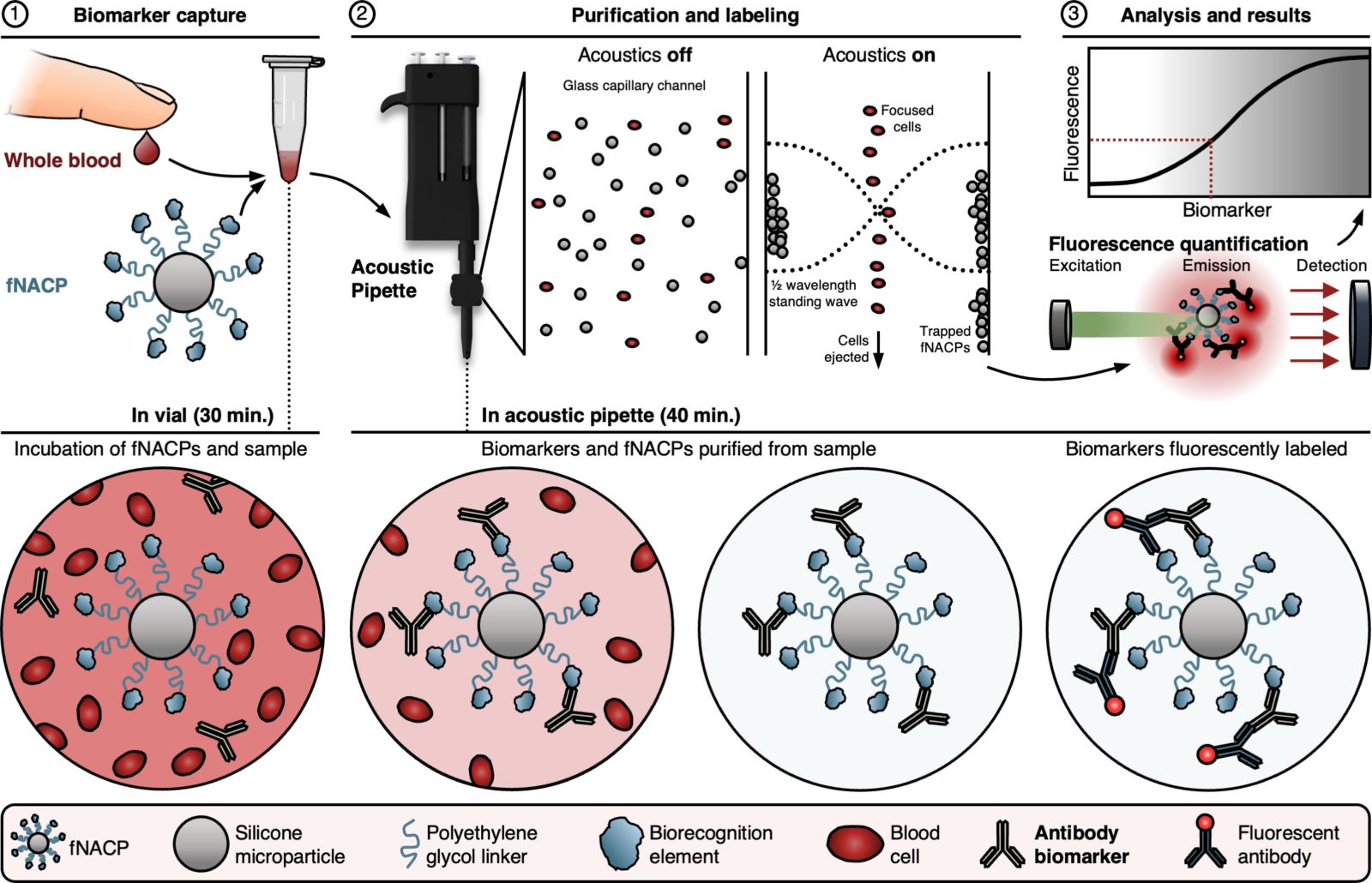A fast, reliable, and syringe-free blood test is possible with this invention! 🩸
Published by Cédric,
Article author: Cédric DEPOND
Source: Science Advances
Other Languages: FR, DE, ES, PT
Article author: Cédric DEPOND
Source: Science Advances
Other Languages: FR, DE, ES, PT
Follow us on Google News (click on ☆)
An innovative portable device promises to significantly change the blood testing process, making analyses more accessible and less intrusive. Developed by researchers at the University of Colorado, this device uses sound waves to quickly isolate biomarkers.

Schematic representation of the particle-based biodetection assay activated by acoustic pipette. The fNACPs capture target biomarkers from blood samples. The fNACPs are then purified from blood components through acoustic trapping, and the captured biomarkers are tagged with a fluorescent antibody inside the acoustic pipette. The fluorescence of the fNACPs is then measured to determine the presence and concentration of the biomarkers. The illustrations are not to scale.
Traditionally, blood tests involve needle sticks, followed by long waiting times for results (ranging from several hours to several days). Scientists are seeking to simplify this procedure. With their technology, a drop of blood is enough to get results in under an hour.
The process relies on functional negative acoustic contrast particles (fNACP). These tiny elements, about the size of a cell, are designed to capture specific biomarkers. Sound waves are then emitted by a portable device (called an "acoustic pipette"), facilitating the sorting of these particles, while fluorescent tags allow for an accurate estimate of their concentration.
Cooper Thome, one of the study's authors, points out that this method could detect antibodies at very low levels. This raises exciting possibilities for diagnosing various diseases.
The researchers acknowledge that further studies are necessary before this technology can be clinically used. However, its potential applications are vast, ranging from infectious diseases to cancers.
Current tests, such as rapid COVID tests, deliver instant results but do not provide details about the concentration of biomarkers. In contrast, the method developed by the Colorado team could close this gap, combining speed with precision.
Previous work, like that conducted by Swiss researchers, also aimed to make blood sampling less invasive. The new device could finally enable bedside blood diagnostics, transforming how medicine responds to patients' needs.
This system, still at the "proof of concept" stage, could be a game-changer in the medical field. Researchers are already working on improving the device to test for multiple biomarkers simultaneously.
What is a biomarker?
A biomarker is a measurable characteristic in an organism, often used to assess health status or disease. Biomarkers can include molecules, proteins, or other biological substances present in bodily fluids such as blood or urine. They play a key role in diagnosing, prognosing, and monitoring various diseases.
Biomarker analysis allows doctors to detect diseases at an early stage, monitor the progression of a condition, or assess the response to treatment. For example, in the case of infections, measuring certain antibodies can indicate the presence of a pathogen.
Thanks to technological advances, like the recent biodetection devices, it is now possible to analyze biomarkers more quickly and accurately, paving the way for more accessible and effective diagnostics.